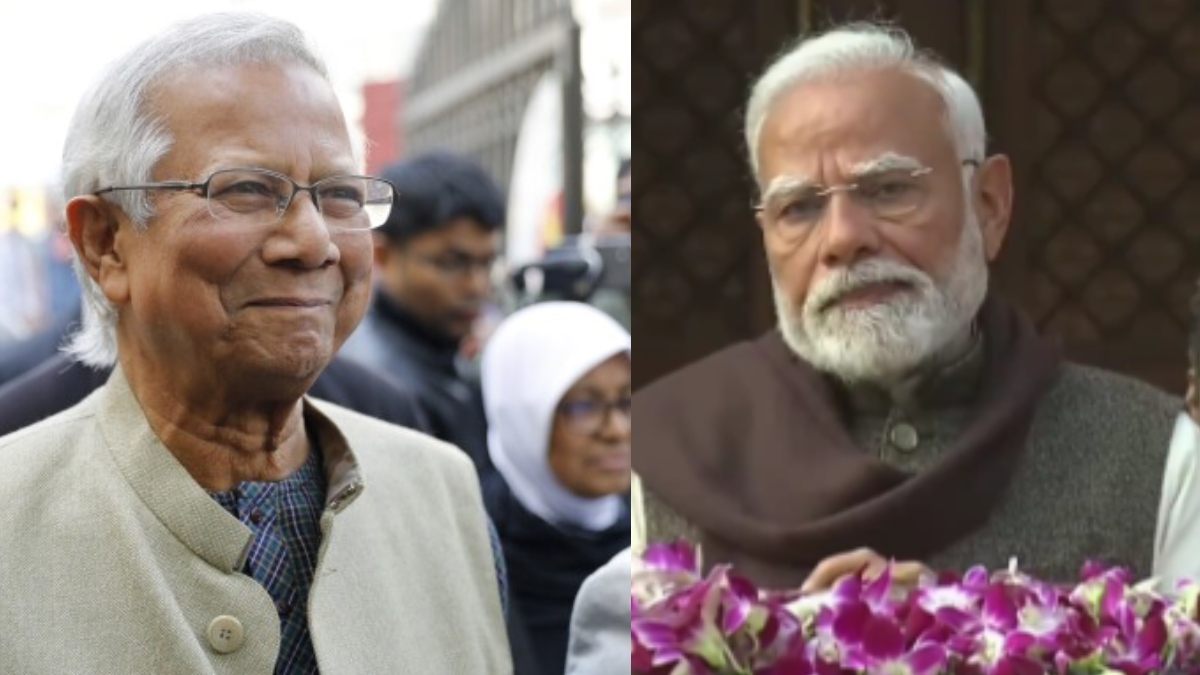Prime Minister Narendra Modi penned a letter to Bangladesh’s Chief Adviser Muhammad Yunus to commemorate the Bangladesh National Day . In the letter, PM Modi underscored the significance of mutual sensitivity and referred to the Bangladesh Liberation War as a ‘shared history’.
The prime minister wrote the letter a week before the two leaders will meet each other for the first time at the Bimstec summit in Thailand. Yunus assumed office last year after Bangladesh’s former Prime Minister Sheikh Hasina was ousted following a violent protest. A key ally of India, Hasina is currently seeking refuge in New Delhi, which is not sitting well with Bangladeshi authorities who are looking to prosecute her.
In the letter, PM Modi emphasised that the national day stands as a testament to “our shared history and sacrifices, that have laid the foundation of our bilateral partnership”. “The spirit of the Liberation War of Bangladesh continues to remain a guiding light for our relationship, which has flourished across multiple domains, bringing tangible benefits to our people," the prime minister said.
Modi, Yunus to meet in Thailand
Prime Minister Modi said that he is looking to advance the ties between India and Bangladesh. “We remain committed to advancing this partnership, driven by our common aspirations for peace, stability, and prosperity, and based on mutual sensitivity to each other’s interests and concerns,’’ he said.
Both leaders will participate in the Bimstec Summit in Bangkok on April 3-4. While Dhaka has sought a bilateral meeting, New Delhi has given a cold shoulder over the matter. While addressing a Parliamentary committee request, External Affairs Minister S Jaishankar said on Wednesday that PM Modi’s bilateral engagements on the margins of the event will be announced later, The Time of India reported.
Meanwhile, Droupadi Murmu wrote a letter to her counterpart, Mohammed Shahabuddin, expressing her support for a democratic, stable, inclusive, peaceful and progressive Bangladesh.
“India-Bangladesh relations are multi-faceted with our cooperation encompassing diverse areas such as trade, multimodal connectivity, development partnership, power and energy, education, capacity building, cultural cooperation and people-to-people exchanges. Bangladesh is at the focus of India’s “Neighbourhood First” and “Act East” policies, its SAGAR doctrine and the Indo-Pacific Vision,’’ she said in the letter.


)

)
)
)
)
)
)
)
)



